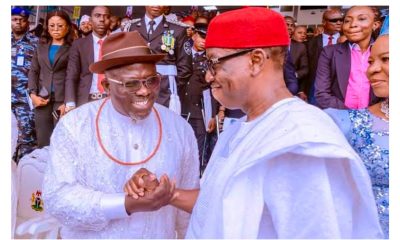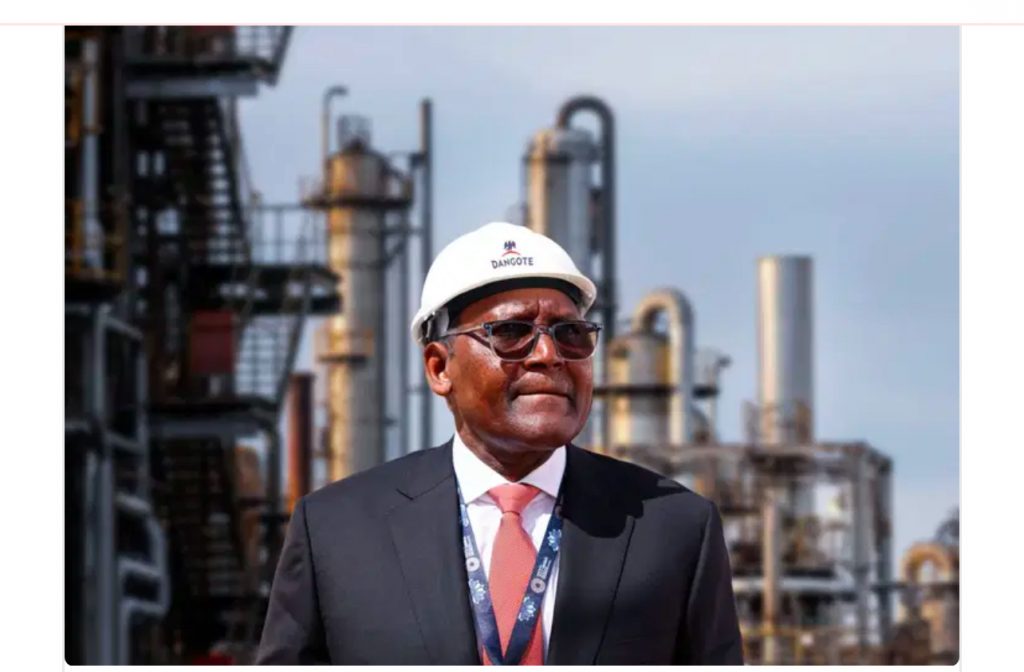 The Dangote Petroleum Refinery has announced that it will begin distribution of Premium Motor Spirit (PMS) and diesel nationwide.
The Dangote Petroleum Refinery has announced that it will begin distribution of Premium Motor Spirit (PMS) and diesel nationwide.
The statement added that the Refinery has invested in the procurement of 4,000 brand-new Compressed Natural Gas (CNG)-powered tankers to ensure smooth take-off of the scheme, which will continue over an extended timeframe
The statement said, “To ensure the smooth takeoff of the free logistics for marketers and petrol dealers buying from Dangote, the statement further disclosed that the refinery has procured 4,000 brand-new Compressed Natural Gas (CNG)-powered tankers.
“This phase of the programme will continue over an extended timeframe. The refinery is also investing in Compressed Natural Gas (CNG) stations, commonly referred to as daughter booster stations, supported by a fleet of over 100 CNG tankers across the country to ensure seamless product distribution.
This strategic programme is part of our broader commitment to eliminating logistics costs, enhancing energy efficiency, promoting sustainability and supporting Nigeria’s economic development. It affirms our dedication to improving the availability and affordability of fuel, in support of broader efforts to strengthen the economy and improve the well-being of all Nigerians.
“Under this initiative, all petrol stations purchasing PMS and diesel from the Dangote Petroleum Refinery will benefit from this enhanced logistics support. Key sectors such as manufacturing, telecommunications, and others will also gain from this transformative initiative, as reduced fuel costs will contribute to lower production costs, reduced inflation, and foster economic growth. Players in these key sectors and others can purchase directly from the Dangote Petroleum Refinery.
The Dangote Petroleum Refinery has announced that it will begin distribution of Premium Motor Spirit (PMS) and diesel nationwide.
In a statement on Sunday, the company said effective from 15th of August 2025, it will begin the distribution of the products to marketers, petrol dealers, manufacturers, telecoms firms, aviation, and other large users across the country, with free logistics to boost distribution network.
The move, according to the company, was a significant national initiative aimed at transforming Nigeria’s fuel distribution landscape.
The statement added that the Refinery has invested in the procurement of 4,000 brand-new Compressed Natural Gas (CNG)-powered tankers to ensure smooth take-off of the scheme, which will continue over an extended timeframe.
“This phase of the programme will continue over an extended timeframe. The refinery is also investing in Compressed Natural Gas (CNG) stations, commonly referred to as daughter booster stations, supported by a fleet of over 100 CNG tankers across the country to ensure seamless product distribution.
“This strategic programme is part of our broader commitment to eliminating logistics costs, enhancing energy efficiency, promoting sustainability and supporting Nigeria’s economic development. It affirms our dedication to improving the availability and affordability of fuel, in support of broader efforts to strengthen the economy and improve the well-being of all Nigerians.
“Under this initiative, all petrol stations purchasing PMS and diesel from the Dangote Petroleum Refinery will benefit from this enhanced logistics support. Key sectors such as manufacturing, telecommunications, and others will also gain from this transformative initiative, as reduced fuel costs will contribute to lower production costs, reduced inflation, and foster economic growth. Players in these key sectors and others can purchase directly from the Dangote Petroleum Refinery.”
The statement added that the refinery will offer a credit facility to those purchasing a minimum of 500,000 litres, which would allow them to obtain an additional 500,000 litres on credit for two weeks, under bank guarantee.
It described the effort as a milestone in its vision to revolutionise the Nigeria’s energy sector.
“This pioneering effort marks a major milestone in our vision to revolutionise Nigeria’s energy sector. Dangote Refinery is dedicated to ensuring that no place is left behind. Our goal is to provide equitable access to affordable fuel for all Nigerians, regardless of location, making energy more accessible and sustainable for everyone, wherever they may b
Post Views: 356
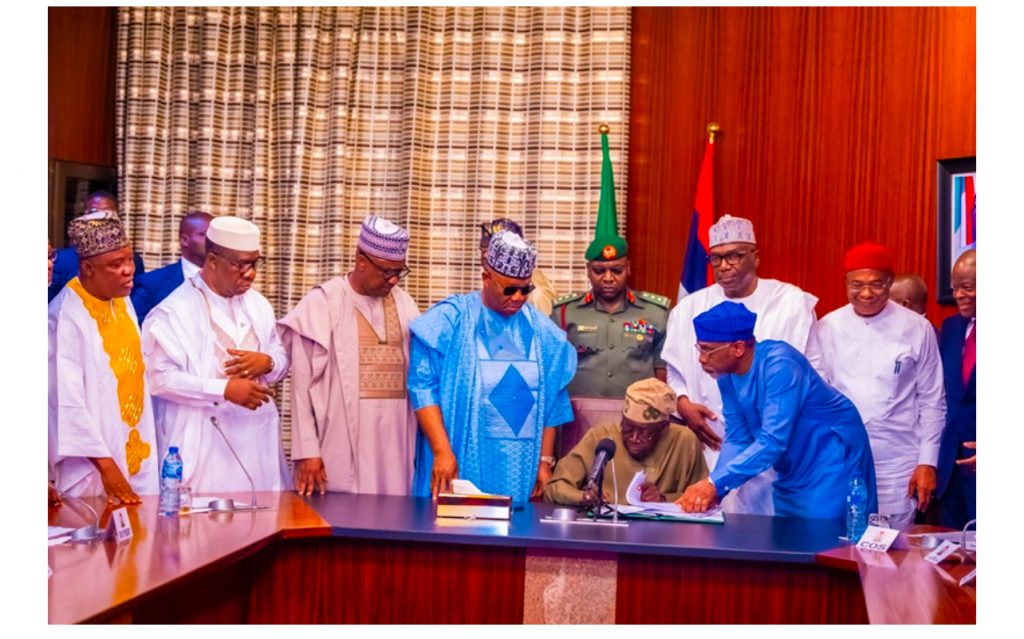
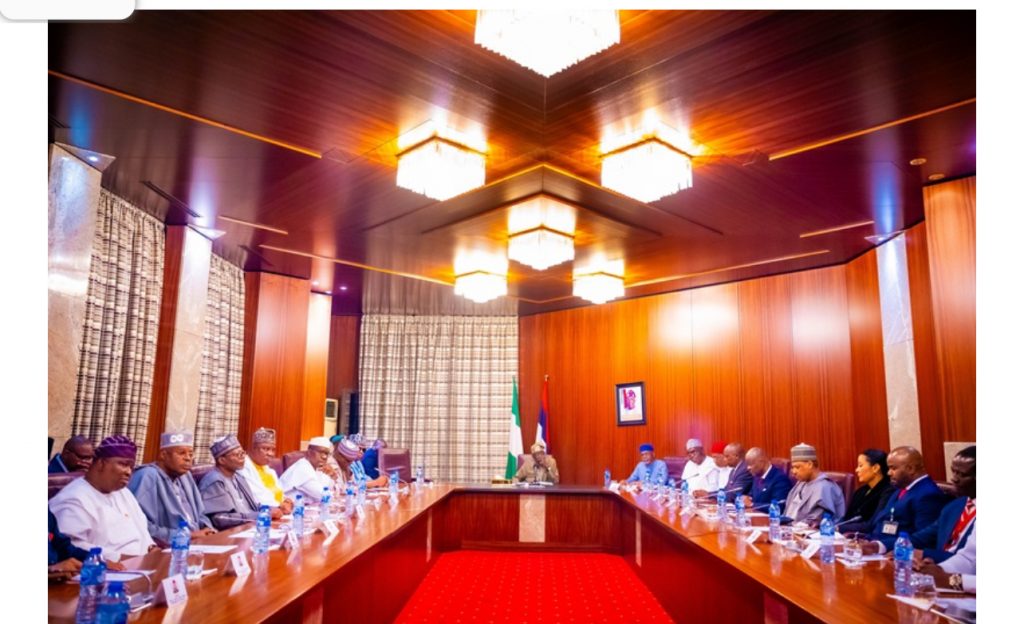 “We are laying a foundation for a tax regime that is fair, transparent and fit for a modern, ambitious Nigeria. A tax regime that rewards enterprise, protects the vulnerable, and mobilises revenue without punishing productivity”, he said.
“We are laying a foundation for a tax regime that is fair, transparent and fit for a modern, ambitious Nigeria. A tax regime that rewards enterprise, protects the vulnerable, and mobilises revenue without punishing productivity”, he said.
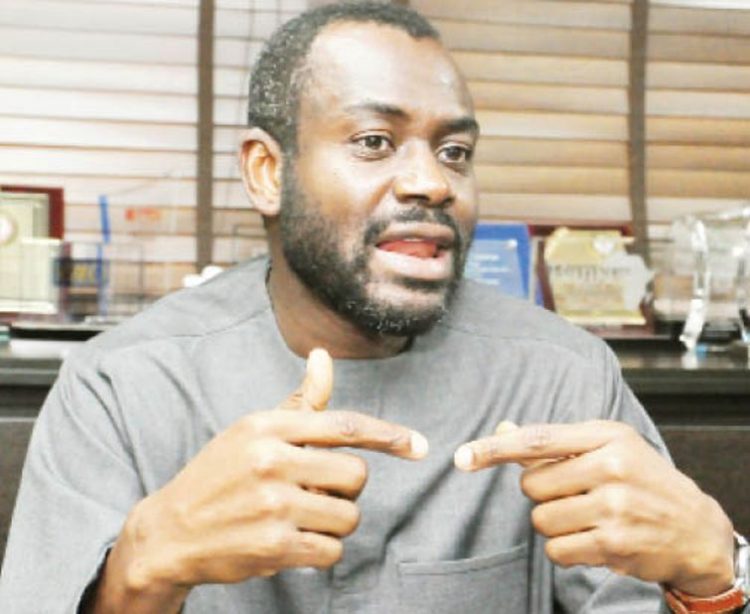
 Recent events have however placed the Abubakar Suleiman led Sterling Bank nulli secondus with scandals. The troubled lender is responsible for everything from fraud to sloppy balance sheets and other nefarious acts, making it almost impossible to bank with the supposed “One Customer Bank” with both eyes closed.
Recent events have however placed the Abubakar Suleiman led Sterling Bank nulli secondus with scandals. The troubled lender is responsible for everything from fraud to sloppy balance sheets and other nefarious acts, making it almost impossible to bank with the supposed “One Customer Bank” with both eyes closed.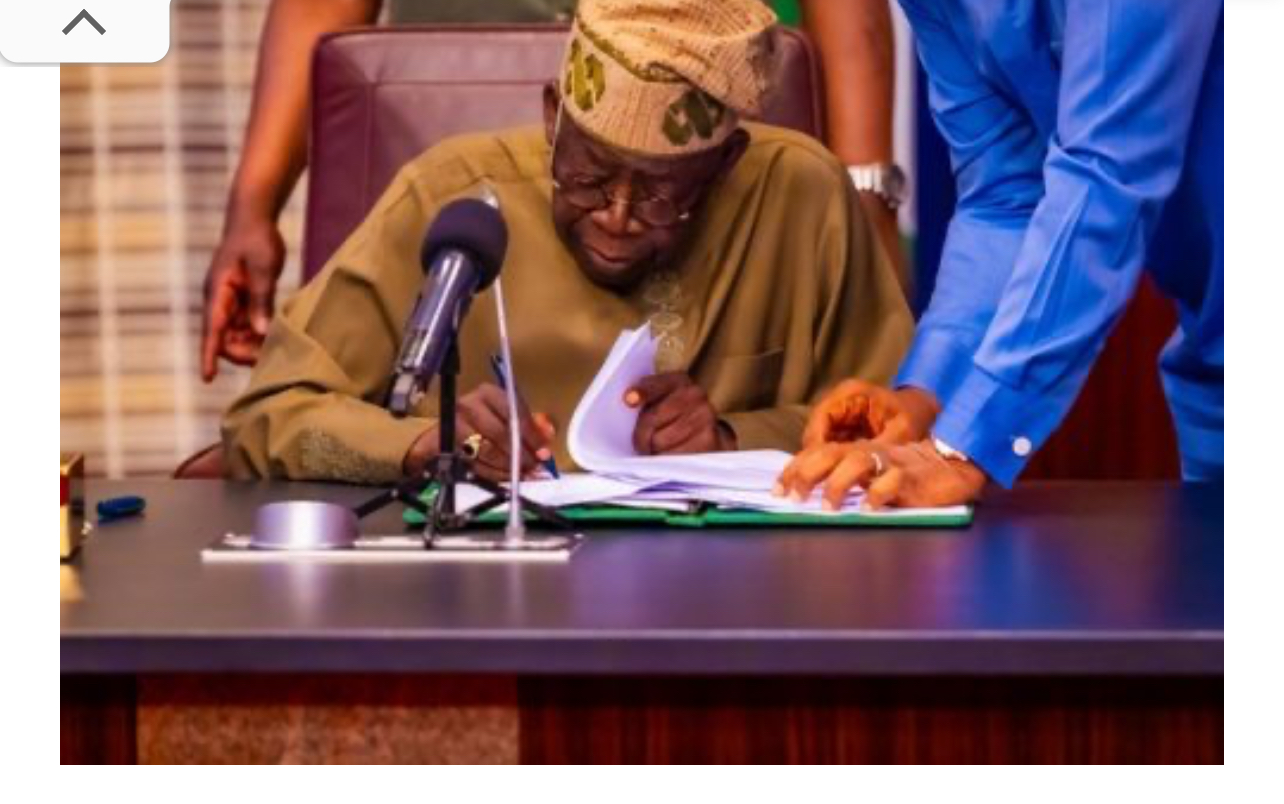
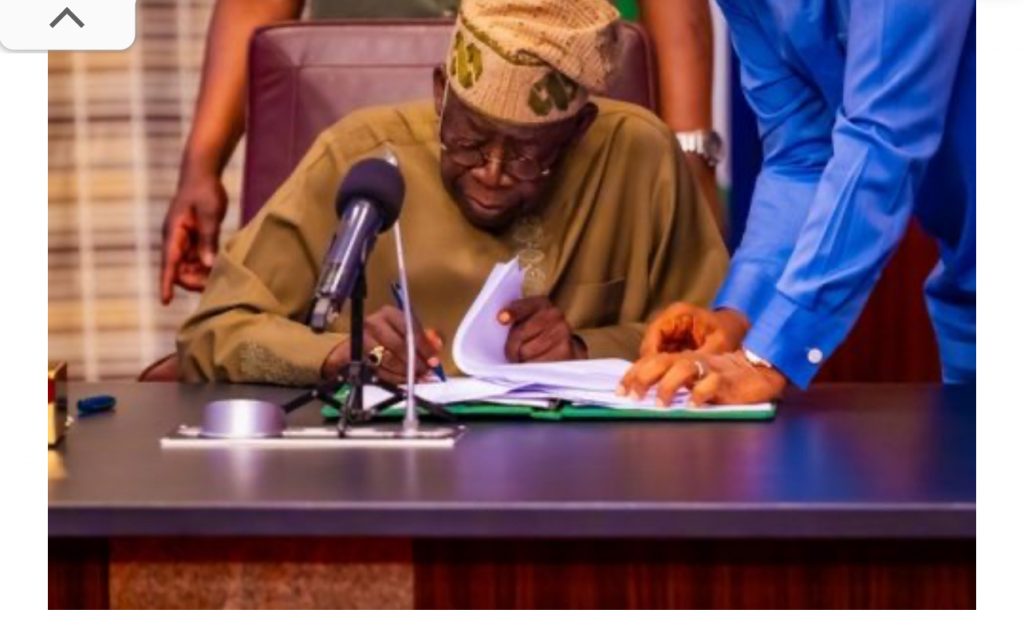 President Bola Ahmed Tinubu has signed the four tax reform bills into law.
President Bola Ahmed Tinubu has signed the four tax reform bills into law.
 Debris of a missile fired from Iran toward Israel leaves a trail in the night sky over Hebron in the occupies-West Bank after being intercepted on June 13, 2025.
Debris of a missile fired from Iran toward Israel leaves a trail in the night sky over Hebron in the occupies-West Bank after being intercepted on June 13, 2025.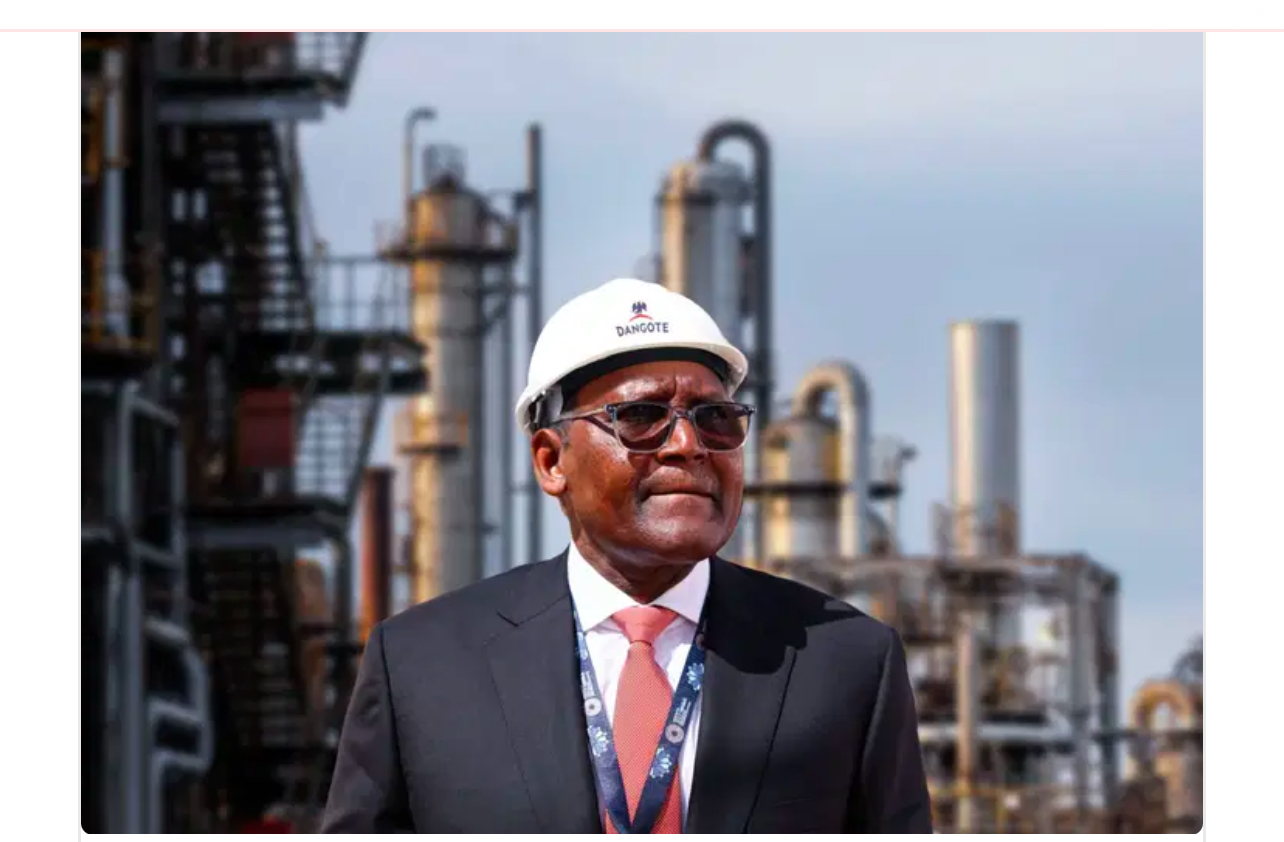
 The Dangote Petroleum Refinery has announced that it will begin distribution of Premium Motor Spirit (PMS) and diesel nationwide.
The Dangote Petroleum Refinery has announced that it will begin distribution of Premium Motor Spirit (PMS) and diesel nationwide.





